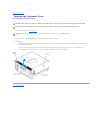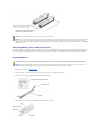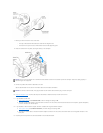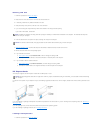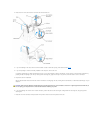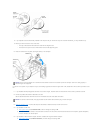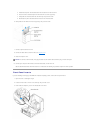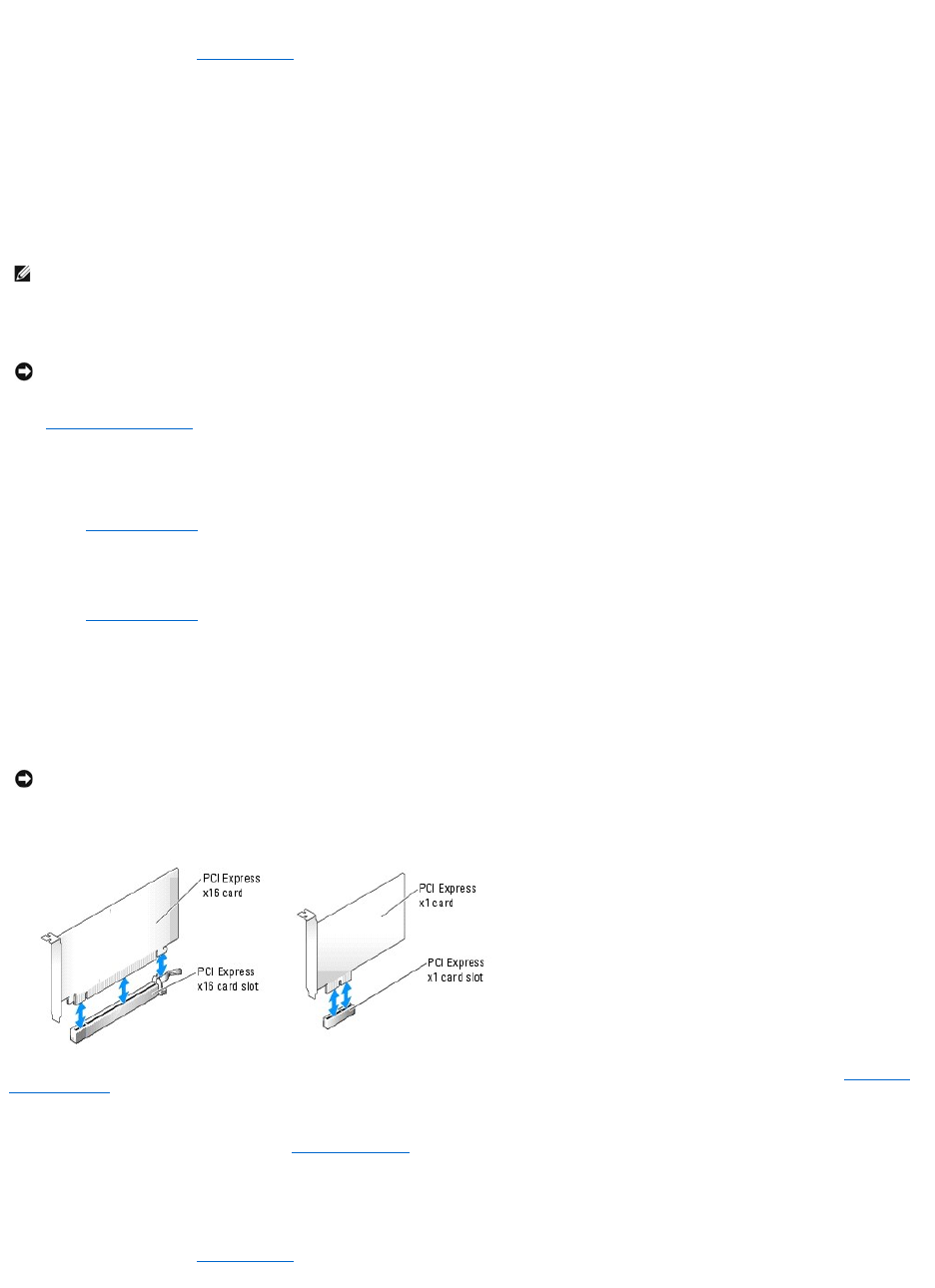
Removing a PCI Card
1. Follow the procedures in "Before You Begin."
2. Press the lever on the card retention arm and raise the retention arm.
3. If necessary, disconnect any cables connected to the card.
4. Grasp the card by its top corners, and ease it out of its connector.
5. If you are removing the card permanently, install a filler bracket in the empty card-slot opening.
If you need a filler bracket, contact Dell.
6. Lower the retention arm and press it into place, securing the card(s) in the computer.
7. Close the computer cover, reconnect the computer and devices to electrical outlets, and then turn them on.
8. Remove the card's driver from the operating system.
9. If you removed a sound card:
a. Enter system setup, select Audio Controller, and then change the setting to On.
b. Connect external audio devices to the audio connectors on the back panel of the computer.
10. If you removed an add-in network connector:
a. Enter system setup, select Network Controller, and then change the setting to On.
b. Connect the network cable to the integrated connector on the back panel of the computer.
PCI Express Cards
Your computer supports one PCI Express x16 card and one PCI Express x1 card.
If a card fan is not present in your computer and you are installing a graphics card that runs at 75 W or higher, contact Dell to find out how to purchase a card
fan.
If you are installing or replacing a PCI Express card, follow the procedures in the next section. If you are removing but not replacing a card, see "Removing a
PCI Express Card."
If you are replacing a card, remove the current driver for the card from the operating system.
If you are installing or replacing a PCI card, see "Installing a PCI Card."
Installing a PCI Express Card
1. Follow the procedures in "Before You Begin."
NOTE: Installing filler brackets over empty card-slot openings is necessary to maintain FCC certification of the computer. The brackets also keep dust
and dirt out of your computer.
NOTICE: To connect a network cable, first plug the cable into the network device and then plug it into the computer.
NOTICE: PCI Express graphics cards that run higher than 75 W may require an additional cooling fan. Otherwise, your card could overheat and damage
your computer.




